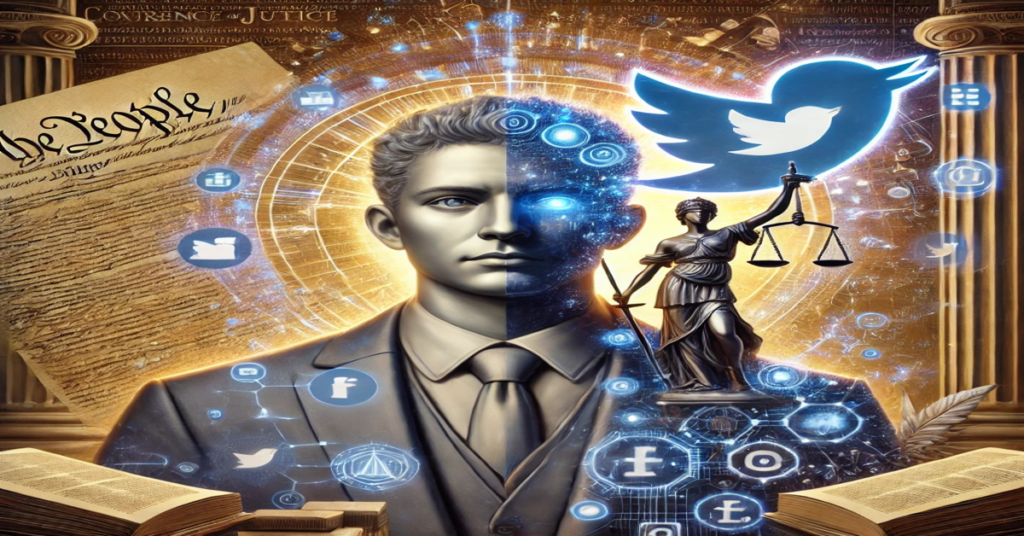Laurence Tribe is a name that resonates deeply in the fields of constitutional law and legal scholarship. A renowned professor emeritus at Harvard Law School, Tribe has spent decades shaping the legal landscape of the United States through his academic work, courtroom arguments, and mentorship of countless law students, including notable figures such as former President Barack Obama. In recent years, Tribe has also become a prominent figure on social media, particularly Twitter, where he shares his insights on law, politics, and democracy. This article explores Laurence Tribe’s use of Twitter, his influence as a public intellectual, and the impact of his commentary on the digital discourse surrounding critical national and global issues.
The Background of Laurence Tribe
Laurence Tribe was born in 1941 in Shanghai, China, to Russian Jewish parents who later emigrated to the United States. Tribe’s academic brilliance became evident early in his life. After earning a bachelor’s degree in mathematics from Harvard College, he pursued a law degree from Harvard Law School, graduating magna cum laude in 1966. Tribe’s career at Harvard spanned more than five decades, during which he authored numerous articles, books, and the seminal treatise American Constitutional Law, considered a definitive work in its field.
Tribe has argued over 35 cases before the U.S. Supreme Court, making him one of the most influential legal advocates of his generation. His work has shaped constitutional jurisprudence on issues ranging from free speech and equal protection to environmental law and federalism. Beyond academia, Tribe has been a vocal public intellectual, weighing in on political and legal controversies with clarity and authority.
Laurence Tribe’s Emergence on Twitter
In recent years, Twitter has become a powerful platform for legal experts, journalists, and public intellectuals to share their insights and engage with a global audience. Laurence Tribe joined Twitter in 2014 and quickly established himself as a prominent voice on the platform. With hundreds of thousands of followers, Tribe uses his account to analyze legal developments, comment on political events, and advocate for the preservation of democratic values.
Key Themes in Laurence Tribe’s Twitter Commentary
- Legal Analysis: Tribe often tweets about ongoing legal cases, Supreme Court decisions, and constitutional issues. His ability to distill complex legal arguments into concise, accessible commentary has earned him a wide audience, including legal professionals and laypeople alike. For example, he has provided detailed analyses of Supreme Court rulings on voting rights, abortion, and executive power.
- Advocacy for Democracy: Tribe frequently uses his platform to defend democratic norms and institutions. During moments of political crisis, such as the January 6th Capitol attack or attempts to undermine election integrity, Tribe’s tweets have served as a rallying cry for the rule of law and constitutional governance.
- Critique of Political Figures: Tribe is not shy about expressing his opinions on political leaders and their actions. He has been particularly critical of figures he perceives as threatening the constitutional order, offering pointed critiques that resonate with his followers.
- Engagement with Followers: Unlike some public intellectuals who use Twitter primarily as a broadcast medium, Tribe actively engages with his audience. He responds to questions, clarifies misunderstandings, and participates in discussions about legal and political issues.
- Human Rights and Social Justice: Tribe’s tweets often address broader issues of social justice, including LGBTQ+ rights, racial equality, and climate change. His advocacy underscores the interconnectedness of constitutional law and human rights.
The Impact of Laurence Tribe on Twitter
Laurence Tribe’s presence on Twitter has had a profound impact on public discourse, particularly in the legal and political realms. Here are some ways his influence manifests:
1. Educating the Public
Tribe’s Twitter feed serves as a valuable resource for those seeking to understand complex legal issues. By breaking down court decisions and legal principles, Tribe makes the law accessible to a broader audience. This democratization of knowledge is especially important in an era where misinformation and legal illiteracy can have significant consequences.
2. Shaping Public Opinion
As a trusted authority, Tribe’s commentary often shapes how people perceive legal and political developments. His tweets are frequently cited by journalists, academics, and activists, amplifying his reach and impact.
3. Encouraging Civic Engagement
Tribe’s advocacy for democratic principles inspires his followers to become more engaged citizens. By highlighting threats to democracy and the rule of law, Tribe encourages his audience to take action, whether by voting, contacting their representatives, or participating in protests.
4. Fostering Legal Dialogue
Twitter’s real-time nature allows Tribe to engage in dialogue with other legal experts, journalists, and policymakers. These interactions enrich the broader discourse on law and politics, providing multiple perspectives on pressing issues.
5. Countering Misinformation
In an age of misinformation, Tribe’s authoritative voice serves as a counterbalance to false narratives. His fact-based analyses help debunk myths and provide clarity on contentious issues.
Challenges and Criticisms
While Laurence Tribe’s Twitter presence is widely celebrated, it has not been without controversy. Some critics argue that his outspoken political commentary risks undermining the perception of academic neutrality. Others take issue with the tone of some of his tweets, which can be sharply critical or sarcastic. Additionally, the polarized nature of social media means that Tribe’s views are often met with intense pushback from those who disagree with him.
Despite these challenges, Tribe’s influence on Twitter remains undeniable. His ability to navigate the complexities of law and politics while engaging with a diverse audience is a testament to his skill as a communicator and advocate.
Lessons from Laurence Tribe’s Twitter Presence
Laurence Tribe’s use of Twitter offers several lessons for public intellectuals and professionals seeking to leverage social media effectively:
- Clarity and Accessibility: Tribe’s ability to explain complex legal concepts in simple terms makes his content accessible to a wide audience.
- Engagement: By responding to followers and participating in discussions, Tribe fosters a sense of community and dialogue.
- Courage: Tribe’s willingness to speak out on controversial issues demonstrates the importance of using one’s platform to advocate for values and principles.
- Adaptability: Tribe’s transition from academia to social media illustrates the importance of adapting to new platforms and communication styles.
- Balance: While Tribe is outspoken, he also provides measured and thoughtful analysis, striking a balance between advocacy and education.
Conclusion
Laurence Tribe’s presence on Twitter exemplifies the power of social media to amplify expertise and influence public discourse. As a legal scholar, public intellectual, and advocate for democracy, Tribe has used his platform to educate, inspire, and challenge his audience. In an era of rapid information exchange and heightened political tensions, voices like Tribe’s are more important than ever.
Through his tweets, Tribe not only provides a window into the complexities of constitutional law but also reminds us of the critical importance of defending democratic principles. His example underscores the potential of social media to be a force for good when used thoughtfully and responsibly.
FAQs about Laurence Tribe and His Twitter Presence
1. What is Laurence Tribe known for? Laurence Tribe is a renowned constitutional law scholar and professor emeritus at Harvard Law School. He is known for his influential legal writings, including the treatise American Constitutional Law, and for arguing cases before the U.S. Supreme Court. On Twitter, he is recognized for his commentary on legal and political issues.
2. Why is Laurence Tribe active on Twitter? Tribe uses Twitter as a platform to share his expertise, analyze legal developments, and advocate for democracy and social justice. His presence on the platform allows him to engage with a global audience and contribute to public discourse on critical issues.
3. What topics does Laurence Tribe tweet about? Tribe frequently tweets about constitutional law, Supreme Court decisions, political events, threats to democracy, human rights, and social justice. He also engages with followers by answering questions and participating in discussions.
4. How has Laurence Tribe’s Twitter presence impacted public discourse? Tribe’s Twitter presence has helped educate the public on legal issues, shape public opinion, and encourage civic engagement. His authoritative voice serves as a counterbalance to misinformation and fosters dialogue on important topics.
5. Has Laurence Tribe faced criticism for his Twitter activity? Yes, Tribe has faced criticism for his outspoken political commentary and the tone of some of his tweets. However, his supporters argue that his advocacy is necessary in defending democratic values and the rule of law.
6. What lessons can public figures learn from Laurence Tribe’s use of Twitter? Public figures can learn the importance of clarity, engagement, adaptability, and courage from Tribe’s Twitter presence. By using social media thoughtfully and responsibly, professionals can amplify their expertise and contribute meaningfully to public discourse.







